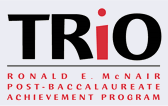Article Title
Investigating X chromosome non-disjunction in Drosophila melanogaster su(var)3-9 mutants
Mentor
Kathryn Kohl, Ph.D.
Major
Biology; World Languages
College
College of Arts and Sciences
Department
Biology
Abstract
Meiotic recombination is a highly regulated process necessary for promoting proper chromosome disjunction during the first meiotic division. Notably, reduced levels of meiotic recombination are observed in heterochromatic regions of the chromosome. This study seeks to investigate the molecular mechanisms underlying this observation by examining the effects of reduced heterochromatin on non-disjunction rates in Drosophila melanogaster. To accomplish this, we measured non-disjunction in wild-type and reduced heterochromatin mutant su(var)3-9 flies. To begin, we confirmed the presence of a mutation within su(var)3-9 via Sanger sequencing. Next, we created allele-specific primers and designed a PCR protocol to more accurately identify mutant flies at the molecular level. Finally, we assayed non-disjunction in wild-type and su(var)3-9 mutant flies and discovered that su(var)3-9 mutants have significantly higher levels of non-disjunction than wild-type flies. We also uncovered a striking sex bias in the non-disjunction progeny of su(var)3-9 mutants.
Recommended Citation
Washington, Camerun C. and Kohl, Kathryn
(2017)
"Investigating X chromosome non-disjunction in Drosophila melanogaster su(var)3-9 mutants,"
The Winthrop McNair Research Bulletin: Vol. 3, Article 11.
Available at:
https://digitalcommons.winthrop.edu/wmrb/vol3/iss1/11


